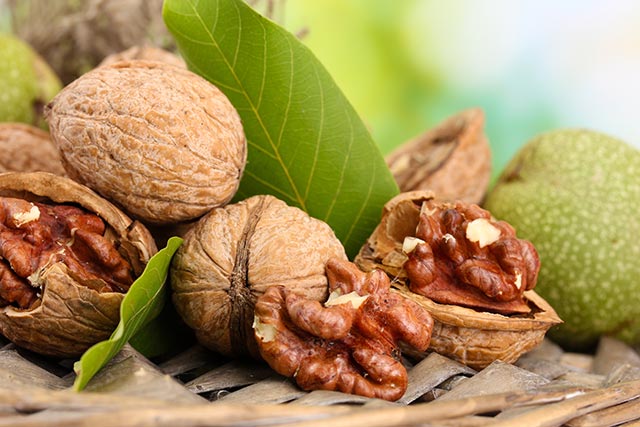
Advertisement
Walnuts are fiber-rich superfoods that are full of micronutrients, including copper, magnesium, and manganese. According to a recent study by researchers from The Pennsylvania State University, consuming nutritious walnuts while following a low-saturated-fat diet can help lower blood pressure.
Cardiovascular disease, the biggest killer of adults in the U.S.
Cardiovascular disease is responsible for the most number of deaths among adults in America. A recent study from the American Heart Association (AHA) reveals that at least 50 percent of all adults in America have some form of heart disease, with high blood pressure (hypertension) being partly responsible for these high levels.
The rise in the number of people with hypertension is also due to the 2017 change to the AHA/American College of Cardiology hypertension guidelines. According to the updated guidelines, hypertension has been redefined as a reading of 130/80 millimeters of mercury (mmHg), compared to the previously established reading of 140/90 mmHg.
Dietary changes and heart health
The findings of the current study, published in the Journal of the American Heart Association, indicate that consuming walnuts can help those at risk of heart disease lower their blood pressure, but only if the nuts are incorporated into a low-saturated-fat diet.
The researchers noted that this study is one of the first to analyze how the properties of walnuts can influence an individual’s heart health. Walnuts contain vitamin E and melatonin and are known to have higher antioxidant activity compared to other kinds of nuts. These also contain alpha-linolenic acid (ALA), a plant-based omega-3 fatty acid that is said to be responsible for the health benefits of walnuts of blood pressure.
In the study, the scientists set out to determine if the ALA in walnuts improved cardiovascular biomarkers, or if other components of walnuts, like polyphenols, had beneficial effects on the blood pressure of those at risk of heart disease.
The researchers worked with 45 participants volunteers aged 30 to 65. The participants were either overweight or obese, and they were instructed to follow a “run-in” diet for two weeks before the study began.
The run-in diet simulated an average U.S. diet, which usually includes a 12 percent calorie content from saturated fat. This ensured that all the volunteers started the study with similar health conditions.
The volunteers were randomly assigned to three different diet groups that were all low in saturated fats. The diets were followed for six weeks, after which they moved on to the next.
All the volunteers followed the three diets at some point:
- One diet included whole walnuts
- Another diet didn’t include walnuts, but it included the same amount of ALA and polyunsaturated fatty acids
- The last diet didn’t include walnuts, and it partially replaced the same amount of ALA in walnuts with oleic acid, another kind of fatty acid
Walnuts and lower blood pressure
The researchers assessed all the volunteers for cardiovascular risk factors at the end of each diet period. Using the data they gathered, the research team found that the heart health of volunteers from all three groups improved.
The results suggest that replacing saturated fats with unsaturated fats from walnuts offers cardiovascular benefits. The scientists also observed that the volunteers who followed the whole walnut diet had lower central blood pressure compared to the others who followed the two other diets. (Related: Walnuts are a delicious way to take care of your heart.)
Central blood pressure refers to the pressure moving toward the heart, which the researchers believe is a reliable indicator of someone’s cardiovascular risk.
Professor Penny Kris-Etherton from PSU shared that something in walnuts was responsible for this benefit. She posited that it could have been bioactive compounds, fiber, or a different component in walnuts that is lacking in the fatty acids alone from other sources.
The scientists concluded that lowering central blood pressure by following the walnut diet can also help reduce overall cardiovascular disease risk in all the volunteers who followed the diet.
Kris-Etherton advised that if you are at risk of heart disease, it is better to snack on a handful of nutritious walnuts instead of eating fatty red meat.
Sources include:
Advertisements







